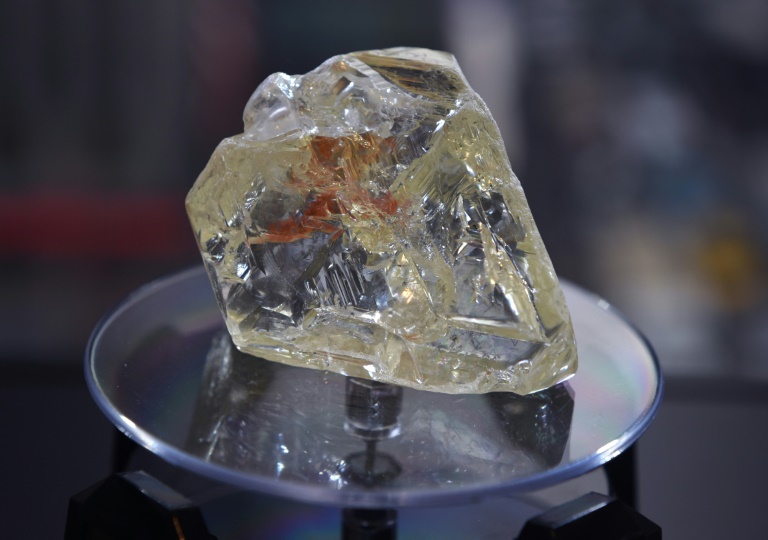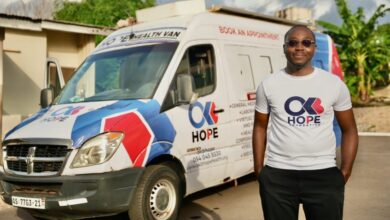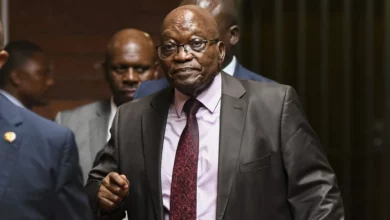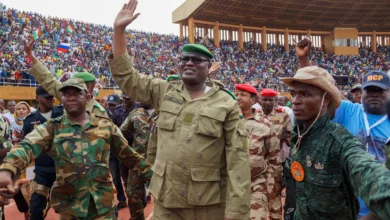
They were promised a “peace diamond” dividend in the Sierra Leone village of Koryardu after the stone they handed over for auction fetched $6.5 million (5.7 million euros) a year ago.
But they are still waiting to see the benefits.
“Absolutely nothing happened,” said Pastor Emmanuel Momoh, who manages the team of diggers that found the 709-carat diamond in March 2017, in eastern Kono province.
The idea of handing the diamond over to the government to sell was that it would generate money to be ploughed back into developing the local community.
But at the village school, Peter Baimoi, who helps teach its about 190 pupils, said there was no sign of the promised government funding.
With no qualified teachers in the village, parents rely on their children being taught by some of the better-educated local people who can read and write, like Bamoi who finished high school.
They do it voluntarily, the pastor said.
The government had promised that 15 percent of the total sale price — nearly one million dollars — would go into a fund for Koryardu to develop water, electricity, health and education.
A year on, Koryardu still has no electricity and no clinic — and the nearest state school is in Koidu, about 14 kilometers (nine miles) away.
The hamlet lies 10 kilometers from the main highway — and the road into the village is still impassable for six months of the year, during the rainy season.
‘Blood’ and ‘peace’ diamonds
Sierra Leone, like some other African countries, is struggling to overcome the legacy of so-called “blood diamonds”, sold by warlords to finance conflicts. The west African country suffered a devastating civil war between 1991 and 2002.
The international community set up the Kimberley certification system in 2003 to eliminate the problem, regulating the sale and export of diamonds.
Experts said Koryardu’s diamond was the largest found in Sierra Leone in almost half a century.
Momoh entrusted it to the administration of the country’s then president, Ernest Bai Koroma, who dubbed it the “peace diamond”.
The auction was originally scheduled to be held at the Central Bank in Freetown, but as the government thought the best offer made there — more than $7 million — was not high enough, they took the sale abroad.
The subsequent auction in New York netted $6.5 million.
The legal option
Under the sale agreement, 60 percent of the proceeds went straight to the government, out of which the village was to get its share, and 40 percent to Momoh, he said.
After sharing his proceeds with the five miners who found the stone, the village chief and the land owner, as well as donating 30 percent to charity and helping villagers, Momoh had about $1 million net, he added.
Declaring the find to the government was the only legal option. The only other alternative would have been to sell to smugglers on the black market.
Momoh also wanted the community to benefit from the proceeds.
But there is still no sign of the money promised to the village.
People need to see tangible benefits, said Victor Topoi, a teacher from Kono province, “not only on paper or in the news, but physically on the ground”.
‘Maintain trust’
The Koroma administration did sign a million-dollar contract with a Chinese company to build a new school and a clinic in the village.
But that deal was frozen when the new president, Julius Maada Bio, took office in April.
Ibrahim Satti Kamara, spokesman for the National Minerals Agency, said there had been some design issues that had now been sorted out.
Work on the project should begin before the end of the year, he told AFP.
“The good news is that the money is still available and ready to use for that project,” he said.
The authorities understand the community’s frustration, he added.
“We expect that by the time we continue with the work, that will change.
“We are aware of the responsibility to maintain that trust, that’s why we’ve been very careful on how the money is spent on the project,” he added.
In the meantime, the Rapaport Group, the auction house that handled the New York sale, has stepped in to help, installing 50 solar panels in the village in November.
It also has plans to bring in water filtration systems.
“We want to make sure that (the villagers) see something tangible as the government gets its act together,” the group’s owner Martin Rapaport told AFP during a visit to Koryardu.
But the money from the diamond sale also needs to materialise, said Momoh.
“If the government doesn’t fulfill its promises, I think that it will break the trust and people will not take their diamonds to the government any longer,” he said.
“Not only the people in Koryardu, but all over Kono.”




